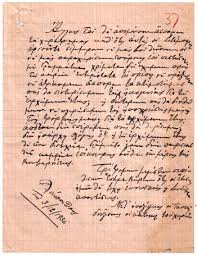
Trevor Todd and Jackson Todd have over sixty years combined experience in estate litigation including ” fixing or curing” wills that fall short of proper execution procedures in icluding the advent of digital wills..
Rempel Estate v Dudley 2020 BCSC 2207 found that certain documents in digital form represented the true testamentary intentions of the deceased and cured the execution deficiencies under S. 58 WESA.
Canada Trust as administrator of the estate of the deceased petitioned the Court for an order under s. 58 of the Wills, Estate and Succession Act, S.B.C. 2009, c. 13 [WESA] that certain documents in digital form represent the testamentary intentions of the deceased, Mr. Rempel. As well, the petitioner sought an order that “deficiencies in any of the said documents which are found to be testamentary be cured”.
The documents in issue are contained on two memory sticks, the first of which contains recordings, including a voice memorandum created by Mr. Rempel and recordings of several telephone conversations between Mr. Rempel and a notary public.
The second memory stick contains file folders and sub-folders created by Mr. Rempel that hold electronic drafts of documents which potentially express Mr. Rempel’s testamentary intentions in the event he died without a will. More specifically, the latter documents include will instruction client questionnaire forms, i.e., drafts of information then sought by a notary public, presumably with the eventual intent to prepare a will, but the search of his premises did locate several paper and electronic documents which indicated Mr. Rempel had been actively working towards completion of a formal will.
The Law
Evidence of statements made by the deceased are admissible. I quote from Pasko v. Pasko, 2002 BCSC 435 at para. 10:
10 There is another exception to the hearsay rule which permits evidence to be given of statements made by deceased persons as to their present state of mind (including intention), which statements need not be against interest, provided that the deceased person’s state of mind is relevant to an issue in the case. See R. v. Smith (1992) 75 C.C.C. 3d 257.
In Modonese v. Delac Estate, 2011 BCSC 82 at para. 84 following reference to Pasko, the Court stated:
84 Following Pasko, if I am wrong in concluding that the statements concerning Regina’s intention to divide her assets equally are not admissible pursuant to s. 5 of the WVA, they ought to be admitted pursuant to this exception to the hearsay rule.
[The WVA was a reference to the Wills Variation Act, RSBC 1996, c.490, as repealed by WESA]
The hearsay statements attributed to the deceased are reliable in that they are repeated in many of the documents prepared by Mr. Rempel over a considerable period of time and, as such, are reliable as to his intentions regarding the disposition of his estate.
The introduction of s. 58 represented a departure from the formalities for execution which had been required under the Wills Variation Act, RSBC 1996, c.490, as repealed by WESA, which was discussed by Dardi J. in British Columbia (Public Guardian and Trustee) v. Shaeffer, 2015 BCSC 1306 at para. 26:
26 The formalities for execution have been incorporated into s. 37 of the WESA. However, the WESA has introduced a remedial provision in s. 58 that gives the court a broad authority to “cure” a purported will, an alteration to a will, or the revocation of a will that does not satisfy the signing and witnessing requirements prescribed by s. 37. S. 58 constitutes a key component of the modernization of the law of wills and succession in British Columbia because it empowers the court to uphold the will-maker’s true intentions even where the will, a gift under the will or a purported alteration or revocation of the will is invalid pursuant to other provisions of the WESA.
In order to be a testamentary document capable of being “cured” under s. 58, the document “must record a deliberate or fixed and final expression of the deceased’s intention regarding disposal of his property on death”: Re Smith Estate 2016 BCSC 350 at para. 23.




